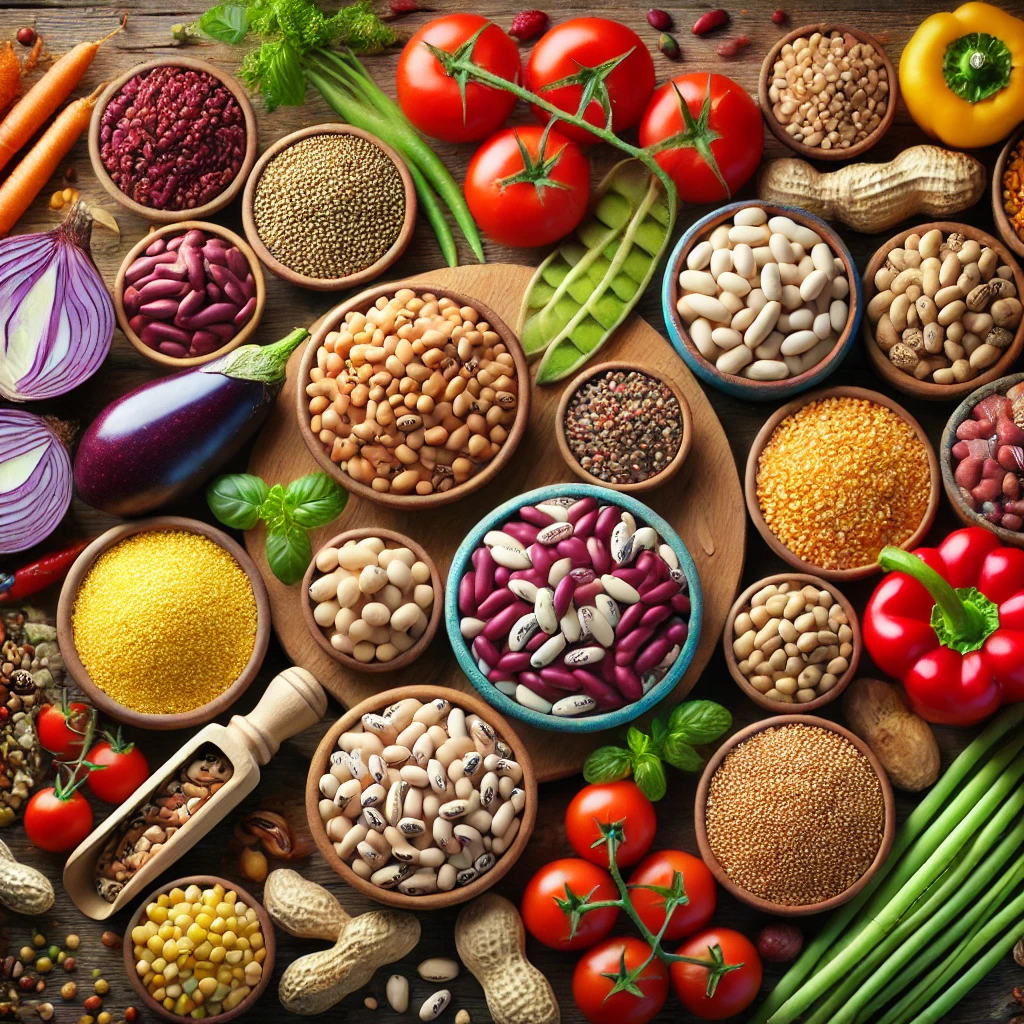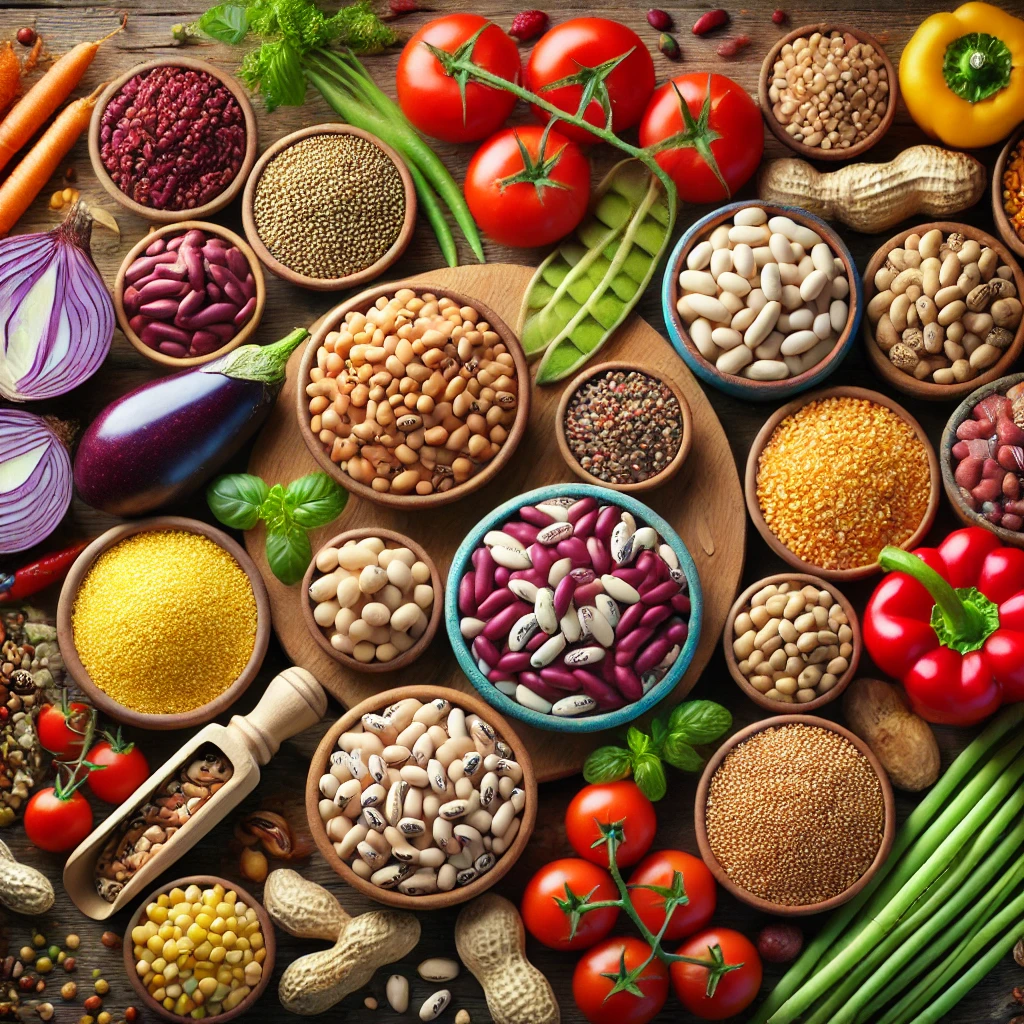
What Are Lectins?
Lectins are a type of protein found in many plants. They serve as a natural defense mechanism to protect them from pests. They act like tiny bouncers, guarding plants by binding to carbohydrates on cell membranes. While they play a critical role in nature, lectins have become a topic of debate in nutrition and gut health.
You can find lectins in foods such as:
- Beans and legumes (e.g., kidney beans, lentils)
- Grains (e.g., wheat, quinoa)
- Nightshade vegetables (e.g., tomatoes, potatoes, eggplant)
- Peanuts and soybeans
While these foods are generally packed with essential nutrients, lectins have a reputation for being potentially harmful to the gut, especially for people with sensitivities.
Lectins and Gut Health: Friend or Foe?
Lectins are sometimes called “anti-nutrients” because they can interfere with nutrient absorption and potentially irritate the gut lining. This has led to concerns about their impact on digestive health, particularly in people prone to gut issues.
One of the most discussed potential problems with lectins is their ability to bind to the intestinal lining, which may lead to:
- Nutrient Malabsorption: By attaching to the gut wall, lectins can prevent the body from fully absorbing vital nutrients.
- Gut Irritation: In some individuals, lectins may contribute to gut inflammation, causing discomfort or digestive issues.
- Leaky Gut: Lectins have been linked to increased gut permeability, or “leaky gut,” where substances can pass through the intestinal barrier, potentially triggering inflammation or immune responses.
However, it’s important to note that not everyone experiences these effects. Many people can consume lectin-rich foods without any adverse reactions, and these foods often contain valuable nutrients and fiber that support overall health.
Should You Avoid Lectins?
Despite the controversy, there’s no need to eliminate lectins entirely. The potential risks of lectins can be minimized through proper food preparation methods and by listening to your body’s signals. For most people, the benefits of lectin-containing foods far outweigh the risks.
Here are some strategies to manage lectins in your diet:
- Cook Foods Thoroughly: Heat breaks down many lectins, especially beans and legumes. Soaking and cooking them properly can reduce their lectin content, making them safe and nutritious.
- Sprouting and Fermenting: These traditional methods help decrease lectins in grains and legumes, making them easier to digest and gentler in the gut.
- Peeling and De-seeding: Some lectins are concentrated in the skins and seeds of fruits and vegetables like tomatoes and peppers. Removing these parts can lower leptin levels.
- Moderation: You don’t have to cut lectin-rich foods out entirely—simply avoid overloading your diet with them. A diverse, balanced diet can help prevent potential gut irritation from lectins.
Lectins and Gut Sensitivity: A Personal Experience
The way your body reacts to lectins can be highly individualized. Some people may experience bloating, discomfort, or other gut issues after eating foods high in lectins, while others might have no symptoms. This is where personalized nutrition comes in.
If you suspect lectins might affect your gut health, consider keeping a food journal to track your meals and any symptoms that follow. By identifying patterns, you can pinpoint whether certain lectin-rich foods are causing issues.
Being mindful of lectin intake may be helpful for those with existing digestive problems, such as irritable bowel syndrome (IBS) or leaky gut. However, it’s crucial to consult a healthcare provider or dietitian before making drastic dietary changes.
Balancing Lectins and Gut Health
Rather than fearing lectins, focus on balance. Many lectin-containing foods are also excellent sources of fiber, antioxidants, vitamins, and minerals. The goal is to enjoy the health benefits of these foods while minimizing any potential adverse effects on gut health.
Here are some tips for incorporating lectin-rich foods into a gut-friendly diet:
- Diversify Your Diet: By eating a wide variety of fruits, vegetables, grains, and legumes, you reduce the chance of overloading on any one lectin-heavy food.
- Opt for Fermented Foods: Fermented foods like yogurt, sauerkraut, and kimchi not only help reduce lectin levels but also introduce beneficial probiotics that support gut health.
- Include Prebiotic Foods: Prebiotics, found in foods like bananas, garlic, and onions, feed the good bacteria in your gut, promoting a healthy microbiome.
- Manage Stress and Get Sleep: Gut health isn’t only about food. Chronic stress, poor sleep, and lack of exercise can disrupt your gut, so maintaining healthy habits can make a big difference.
Practical Steps to Support Gut Health
Beyond managing lectin intake, a holistic approach to gut health can improve digestion and overall well-being. Here are some practical tips:
- Increase Fiber: Fiber-rich foods like fruits, vegetables, and whole grains fuel your gut microbiome, helping it thrive.
- Incorporate Probiotics: Foods like kefir, yogurt, and miso are rich in probiotics, which help maintain a healthy balance of gut bacteria.
- Stay Hydrated: Drinking enough water supports digestion and helps prevent constipation by keeping things moving through your digestive system.
- Exercise Regularly: Physical activity promotes gut motility and encourages a diverse, balanced microbiome.
- Pay Attention to Symptoms: If you notice persistent gut issues, such as bloating, gas, or discomfort, consider consulting a healthcare professional. They can help you identify triggers and develop a personalized plan to manage your gut health.
Final Thoughts: Striking the Right Balance for Gut Health and Lectins
Lectins, naturally occurring proteins in many plant foods, offer benefits and potential challenges for gut health, depending on individual tolerance and preparation methods. With mindful approaches—like thorough cooking, sprouting, and peeling—and a balanced, varied diet, most people can enjoy lectin-rich foods without adverse effects.
Conclusion:
- Preparation Matters: Cooking, soaking, or fermenting can reduce lectin levels, making foods gentler in the gut.
- Listen to Your Body: Track symptoms and adjust your diet if you notice digestive discomfort.
- Holistic Gut Health: A balanced approach, including a diverse diet, stress management, and good sleep habits, will support overall well-being.
Balance, dietary variety, and personal awareness are key to supporting your gut health while enjoying a wide range of nutritious foods.

